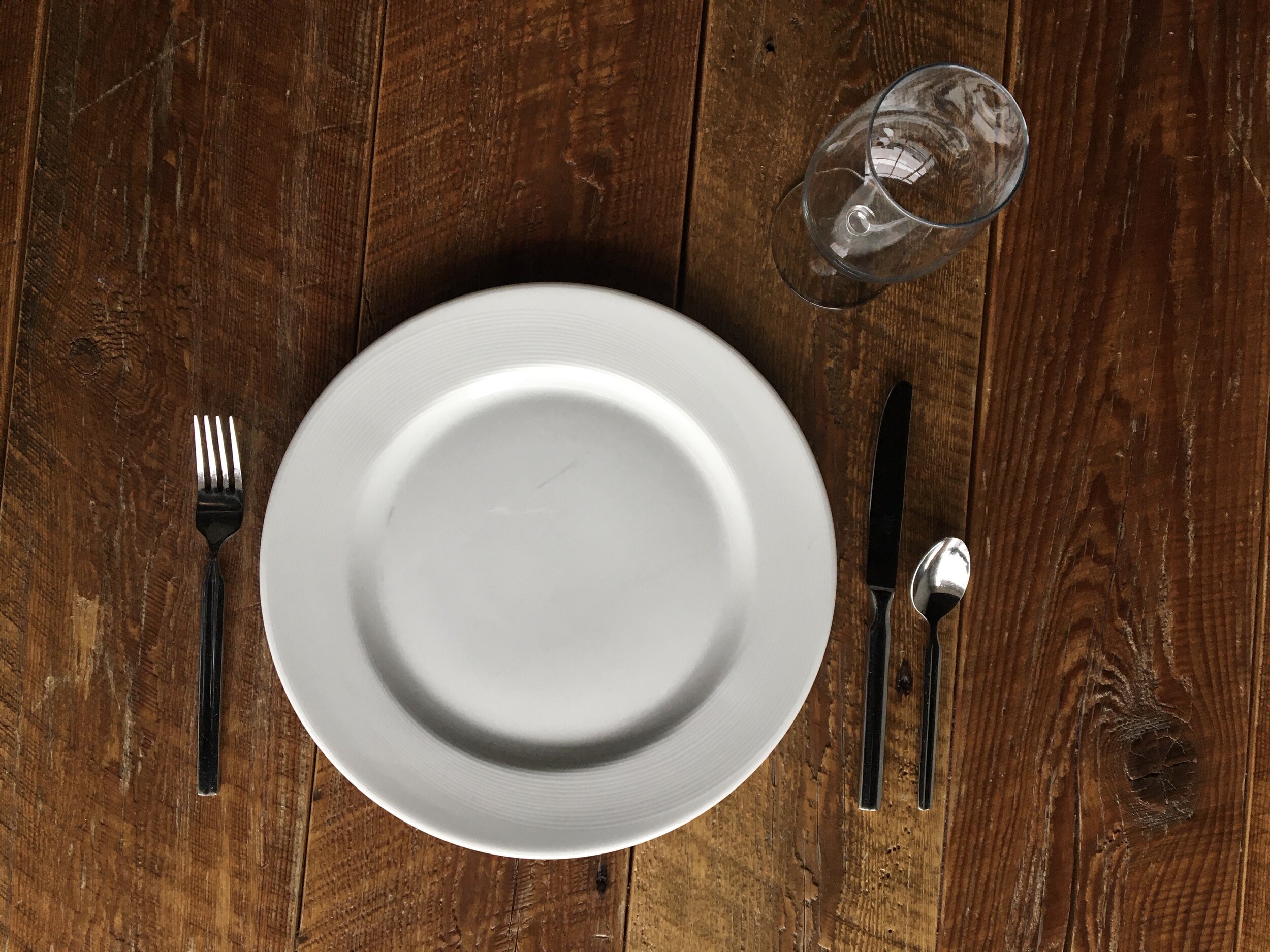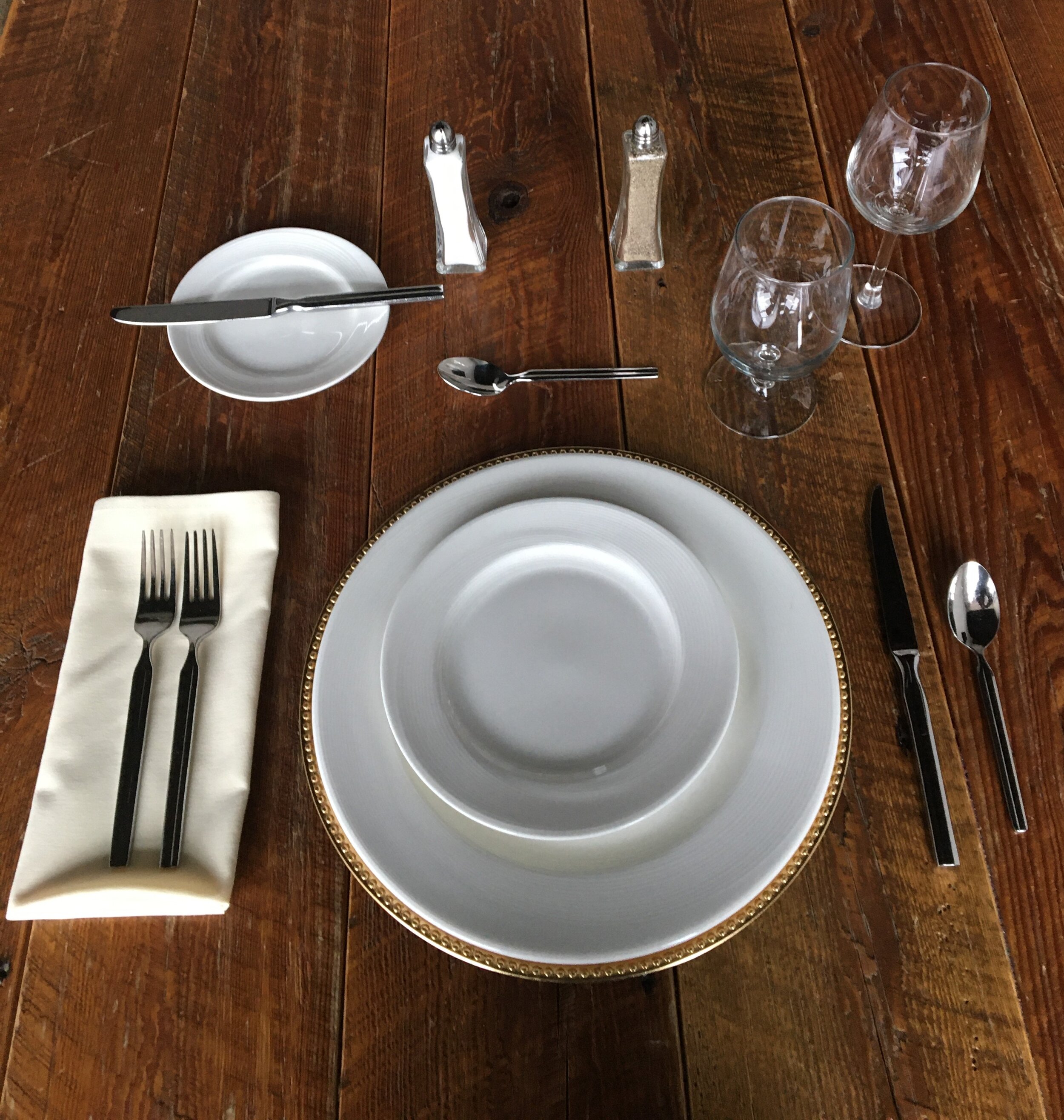How to Set a Table
In our previous blog about opting for a more simplistic Thanksgiving, we mentioned that the time saved from cooking could be used to putting in a little more effort into the details. Adding a nice, seasonal centerpiece and setting the table can enhance the overall dinner experience for you and your guests. However, most people don’t know basic table settings! The basic rules and guidelines for a proper table setting may seem intimidating, but it’s quite simple once you get it down. Whether you’re planning a casual dinner with friends or an extravagant holiday party, we’ve got you covered.
Basic Table Setting
A basic table setting would be used for getting ready for an everyday dinner or weekend brunch. A placemat, cutlery, dinner plate, water glass and napkins is all you need.
Instructions
Lay the placemat on the table.
Put the dinner plate in the middle of the placemat.
Lay the napkin to the left of the plate.
Place the fork on the napkin.
To the right of the plate, place the knife closest to the plate, blade pointing in. Place the spoon to the right of the knife. The bottoms of the utensils and the plate should all be level.
Place the water glass slightly above the plate, in between the plate and the utensils, about where 1 o’clock would be on a clock face.
Casual Table Setting
The basic setting and casual setting are virtually the same but with a few extra elements such as a salad plate or a soup bowl (or both!). This is a great setting for casual gatherings or a laid-back dinner party. As a general rule of thumb, only set out the glassware, tableware, and flatware that will be used. For example, if you’re not going to have a salad course then you will not need to set out a salad fork. If you’re not serving soup, then you don’t need a soup bowl or spoon. If you’re serving wine, set out a wine glass.
Instructions
Lay the placemat on the table.
Put the dinner plate in the middle of the placemat.
Place the salad plate on top of the dinner plate.
If you’re starting with a soup course, place the soup bowl on top of the salad plate.
Lay a napkin to the left of the charger.
To the left of the plate, place the fork on the napkin.
On the right of the plate, place the knife closest to the plate and then the spoon.
Directly above the knife, place the water glass.
To the right and slightly above the water glass, place the wine glass or a glass for another beverage.
Formal Table Setting
A formal table setting includes many pieces: a tablecloth, chargers, dinner plates, soup bowls, salad plates, bread plates, napkins, salad forks, dinner forks, knives, soup spoons, butter knives, dessert spoons, water glasses, red wine glasses, and white wine glasses. If you know how to set a casual setting then you’ll have no problem setting a formal one. The biggest difference between the two is the use of charger plates. A charger plate is a large, decorative base setting on top of which other dinnerware is placed during formal occasions. They are solely for decorative purposes and not meant to be in contact with food directly. Your dinner plate would be placed on top of the charger plate.
Instructions
Lay an ironed tablecloth on the table.
Set a charger at each seat.
Set dinner plate on charger.
If salad is being served, place salad plate on top of dinner plate.
If soup is being served, place soup bowl on top of salad plate (or charger plate).
Place the bread plate to the top left of the charger (between 10 and 11 o’clock).
Lay a napkin to the left of the charger.
On the left of the charger, place the salad fork on the outside, and the dinner fork on the inside. You can put the forks on the napkin, or for roomier settings, directly on the tablecloth between the napkin and the charger.
On the right of the charger, place the knife closest to the charger (blade facing in towards the charger) and then the soup spoon. All vertical flatware (salad fork, dinner fork, knife, and soup spoon) should be spaced evenly, about half an inch away from each other, and the bottoms of each utensil should be aligned with the bottom of the charger.
Place a butter knife horizontally, blade facing inwards on top of the bread plate with the handle pointing to the right. In all place settings the blade will face inwards towards the plate.
Directly above the charger, place a dessert spoon (a teaspoon) with the handle pointing to the right.
Directly above the knife, place a water glass. To the right of the water glass place the white wine glass. The red wine glass goes to the right of—and slightly above—the white wine glass.
If using individual salt and pepper shakers for each guest, place them above the dessert spoon. Otherwise, place them near the center of the table. If using a long, rectangular table, place them in the middle of each end.
If using a place card, set it above the dessert spoon.




